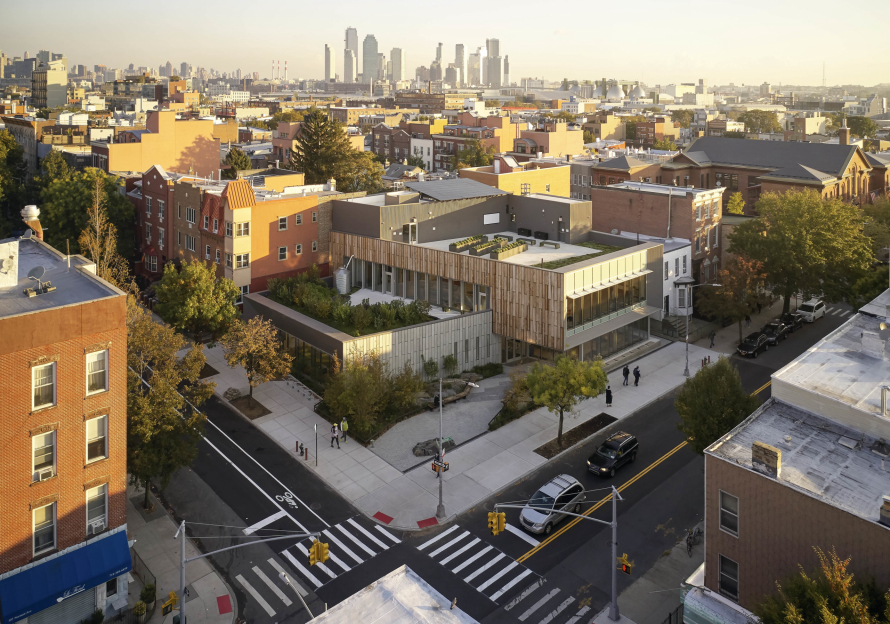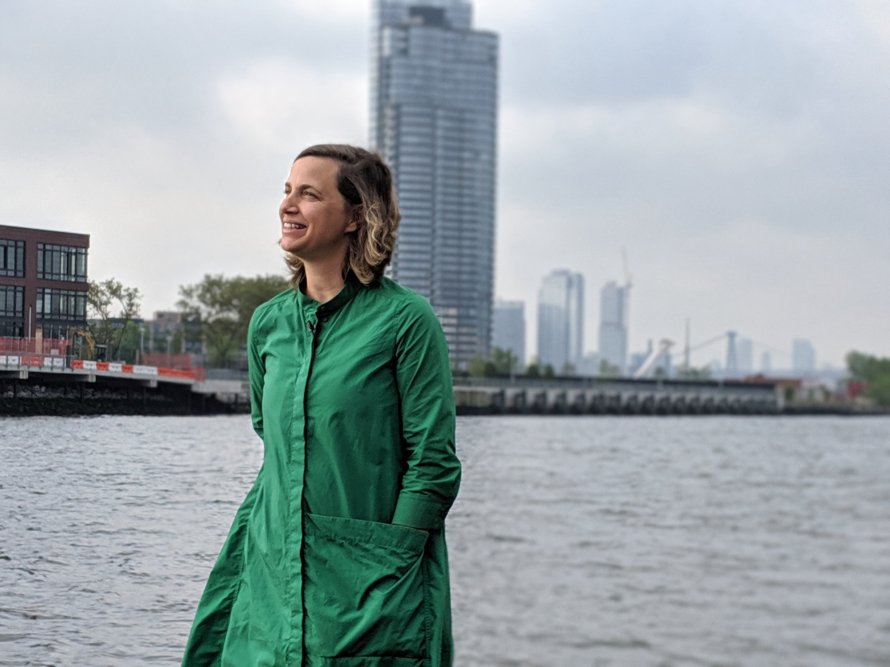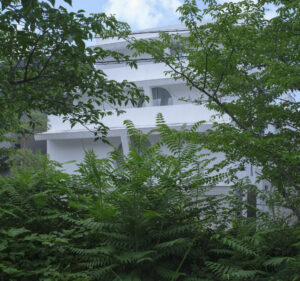
Until recently, it might have been fair to say that much of Kate Orff’s work was about revealing natural systems hidden in urban places. The 49-year-old founder of SCAPE, a landscape architecture and design studio based in Manhattan and New Orleans, has built a reputation for wedding deep research to designs that make lost or neglected ecologies visible to city dwellers. Now, however, she can see that strategy isn’t anywhere near enough.
Historically, landscape architects have designed what Orff terms “micro paradises,” pleasant pastoral interludes, but that phase is over. In a “globalized, interconnected world with all the systems in a state of collapse,” Orff argues, “there is a massive need to completely hit the reset button on the methods, the goals and the outcomes of landscape architecture.”
What does this reset look like? Orff, who also directs the Urban Design Program at Columbia University, points to SCAPE’s Chattahoochee RiverLands project, a planned 125-mile trail system for walking, biking and boating along a neglected Atlanta-area waterway. “I love that project because it’s at the scale at which we need to be thinking and acting,” Orff says.

She also mentions the newly completed Living Breakwaters, a 2,400-foot-long series of artificial oyster reefs (with real oysters) that SCAPE has been working on since the aftermath of Superstorm Sandy. It’s largely invisible because it is underwater, but it is positioned to protect Staten Island from future storm surges. Orff believes it’s the “first nature-based infrastructure project at this scale.”
But the reset she envisions is even bigger than those projects. Through Columbia, she’s involved with an initiative to undo the damage done to the Mississippi River by a century’s worth of flood-control measures bulldozed into place by the Army Corps of Engineers. “We’re about to lose the Mississippi as a living system,” Orff contends. It’s a disaster she’d like to devote herself to preventing. A revitalized Mississippi, all 2,318 miles of it; that would truly be “nature-based infrastructure” working at scale.
Craving more culture? Sign up to receive the Cultured newsletter, a biweekly guide to what’s new and what’s next in art, architecture, design and more.










 in your life?
in your life?

